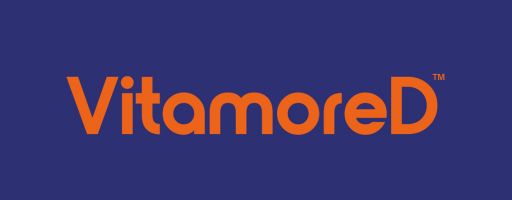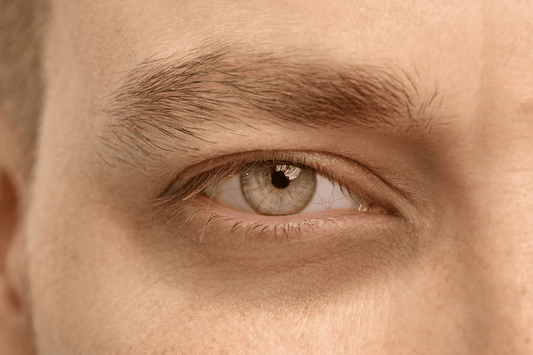Vitamin D is essential for overall health, supporting everything from bone strength to immune function. Yet, despite its importance, vitamin D deficiency is a common issue that affects millions worldwide. Identifying the signs and symptoms of vitamin D deficiency early on can help you take action before it leads to more serious health problems.
In this blog, we’ll explore the signs and symptoms of vitamin D deficiency and discuss why calcifediol supplements may be the best solution.
Understanding Vitamin D Deficiency
Vitamin D deficiency occurs when your body doesn't have enough of this vital nutrient to function properly. It can be caused by several factors, including limited sun exposure, poor diet, certain health conditions, and the body’s inability to convert vitamin D into its active form.
Common Signs and Symptoms of Vitamin D Deficiency
Vitamin D deficiency can manifest in various ways, some of which may be subtle or easily mistaken for other health issues.
Here are some common signs and symptoms to watch out for:
1. Fatigue and Tiredness
One of the most common but often overlooked symptoms of vitamin D deficiency is feeling constantly tired. If you're getting enough sleep but still feel exhausted, low vitamin D levels might be to blame.
2. Bone Pain and Muscle Weakness
Vitamin D plays a critical role in calcium absorption, which is essential for bone health. Deficiency can lead to bone pain, joint discomfort, and muscle weakness, increasing the risk of fractures and falls, particularly in older adults.
3. Frequent Illness or Infections
Vitamin D is crucial for immune system function. If you find yourself catching colds, the flu, or other infections more frequently, it could be a sign that your immune system is compromised due to low vitamin D levels.
4. Depression and Mood Changes
Low levels of vitamin D have been linked to mood disorders, including depression. This connection is believed to be due to vitamin D's role in regulating serotonin, a neurotransmitter that influences mood.
5. Hair Loss
While hair loss can be caused by many factors, severe hair loss has been linked to vitamin D deficiency, particularly in cases of alopecia areata, an autoimmune condition.
6. Slow Wound Healing
Vitamin D is involved in the production of compounds that are crucial for forming new skin during wound healing. If your cuts and bruises are slow to heal, it may be due to a lack of vitamin D.
7. Bone Loss
As vitamin D deficiency progresses, it can lead to bone loss (osteoporosis) due to insufficient calcium absorption. This is particularly concerning for postmenopausal women, who are already at higher risk for osteoporosis.
The Best Solution: Why Calcifediol is Superior to Other Supplements
When it comes to correcting vitamin D deficiency, supplements are often necessary, especially for those with limited sun exposure or dietary restrictions. While there are various forms of vitamin D supplements available, calcifediol stands out as the superior choice for several reasons.
Calcifediol (Active Vitamin D3) vs. Cholecalciferol (In-active Vitamin D3)
Most vitamin D supplements on the market contain cholecalciferol, commonly known as vitamin D3. Cholecalciferol is the in-active form of vitamin D that your skin produces in response to sunlight. However, once ingested, it must be converted by the liver into calcifediol (25-hydroxyvitamin D), the active form that your body can use.
Calcifediol supplements, on the other hand, provide your body with the active form of vitamin D directly. This means that it doesn’t require conversion in the liver, making it a more efficient and effective option, particularly for individuals who may be undernourished, have liver or kidney conditions or those who have difficulty converting vitamin D3 into its active form.
Advantages of Calcifediol Supplements
- Faster Absorption: Calcifediol is absorbed more quickly into the bloodstream, leading to faster increases in vitamin D levels. This makes it an ideal choice for those needing rapid correction of deficiency.
- Higher Potency: Research indicates that calcifediol is more potent than cholecalciferol, meaning smaller doses are required to achieve the same effect. This can be particularly beneficial for individuals who need to increase their vitamin D levels quickly or those within underlying health conditions that want the safest possible vitamin D supplement option.
- More Reliable for Those with Health Conditions: For individuals with liver impairments or conditions that affect vitamin D metabolism, calcifediol provides a more reliable source of vitamin D because it bypasses the need for liver conversion.
How to Supplement Safely
Before starting any vitamin D supplement, it’s important to have your vitamin D levels tested. If you have any existing health issues, struggle with restriction/undernourishment or have liver or kidney issues, speak to your healthcare provider about using vitamin D as Calcifediol for the safest way to optimised and rebalance your vitamin D levels.
Conclusion: Take Action on Vitamin D Deficiency
Vitamin D deficiency is a widespread issue with serious health consequences if left untreated. By recognising the signs and symptoms early, you can take proactive steps to correct your vitamin D levels and protect your health.
Calcifediol supplements offer a fast, potent, safe and effective solution for those looking to quickly and efficiently address vitamin D deficiency. If you suspect you’re deficient, consider discussing Calcifediol supplementation with your healthcare provider as part of your strategy to restore optimal vitamin D levels.




